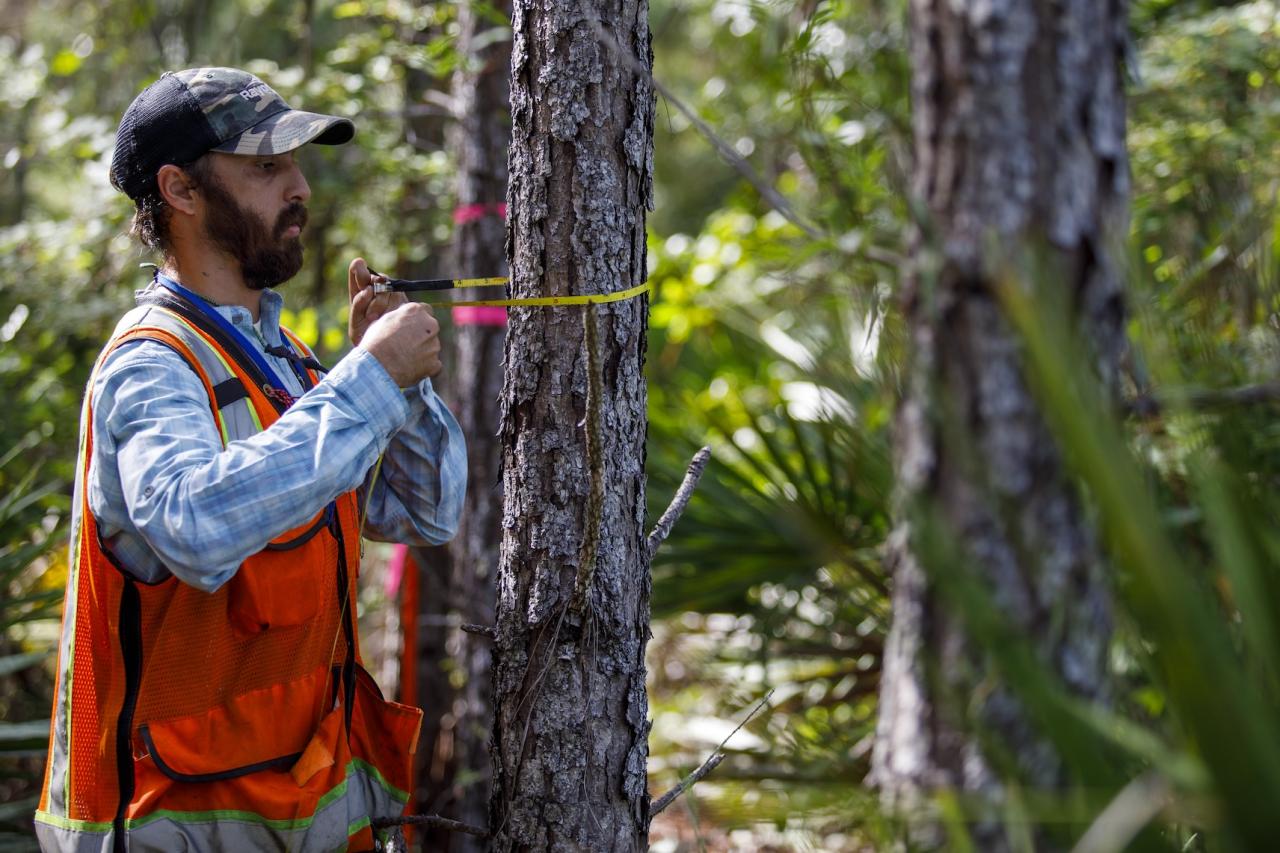Rayonier Executive: Why Forest Products Are Critical to Health of U.S. Economy, Environment
- Forest industry generates over 80,000 rural jobs and contributes 5% to US manufacturing GDP
- Forests capture and store 15% of US carbon emissions, contributing to climate change mitigation
- Rayonier is working to spread awareness about forestry careers and sustainable practices
- None.
By Mark Hebert
Originally published 10/21/23 on jacksonville.com | The Florida Times-Union
NORTHAMPTON, MA / ACCESSWIRE / October 24, 2023 / I have been fortunate to work in the forest industry for 26 years and have witnessed firsthand the positive economic impact of our sector on rural communities across the United States.
This impact becomes tangible when you think about all the people it takes to plant trees, manage forest land, harvest timber, transport logs to mills and manufacture the sustainable forest-based products we all rely on in daily life, like paper, cardboard, plywood and lumber.
The company I work for, Rayonier, generates more than 80,000 rural jobs throughout the forest products supply chain. Our industry is responsible for
Beyond these economic benefits, the forest sector also plays a critical role in mitigating climate change. The U.S. cannot reach its ambitious goal of carbon neutrality by 2050 without a healthy forest sector. Currently, forests capture and store more than
Healthy forest products markets are also important. Otherwise, landowners face pressure to sell or convert the land to alternative uses. This is true not just for large companies like Rayonier, but also for families and individuals managing smaller tracts of land.
At Rayonier, we have been working hard to spread awareness about forestry careers by talking to teachers and students. What we want them to understand is that working in our industry is an opportunity for them to be stewards of the land and its resources.
For example, because our company's core business model relies on timber and wood products, we must have a continuous supply of trees over the long term. We only harvest about
When students realize that these are truly renewable resources and that we use the best available science to steward these lands, they begin to connect the dots and see that forestry is part of the new low-carbon economy- and a chance for them to contribute to a sustainable future.
Beyond our traditional supply chains, there is a growth opportunity in the new low-carbon economy as well. As we shift into a bioeconomy, Rayonier as a landowner is looking to harness the untapped potential of our land base with opportunities like wind, solar, carbon storage and other various carbon programs.
Over the next 10 years, there will be advancements in all these areas as the U.S. addresses sustainability and climate change concerns. We hope to hire the next generation of foresters and contractors who understand these technologies.
The forest sector is the lifeblood of many rural communities and healthy forests are critical to building a sustainable future. Let's celebrate National Forest Products Week by raising awareness about our workforce development needs and the opportunities for young people to become stewards in our sector.
Mark Hebert is vice president of Eastern Forest Resources at Rayonier, a global forest products, timber and land management company based in Yulee.

View additional multimedia and more ESG storytelling from Rayonier on 3blmedia.com.
Contact Info:
Spokesperson: Rayonier
Website: https://www.3blmedia.com/profiles/rayonier
Email: info@3blmedia.com
SOURCE: Rayonier
View source version on accesswire.com:
https://www.accesswire.com/795964/rayonier-executive-why-forest-products-are-critical-to-health-of-us-economy-environment
FAQ
What is the economic impact of the forest industry on rural communities?
How do forests contribute to climate change mitigation?







